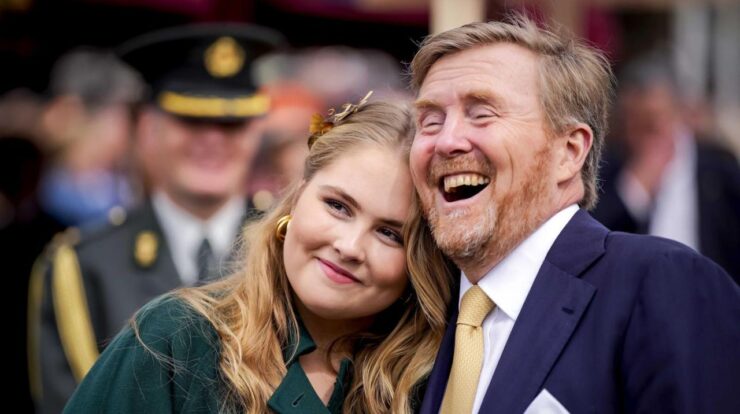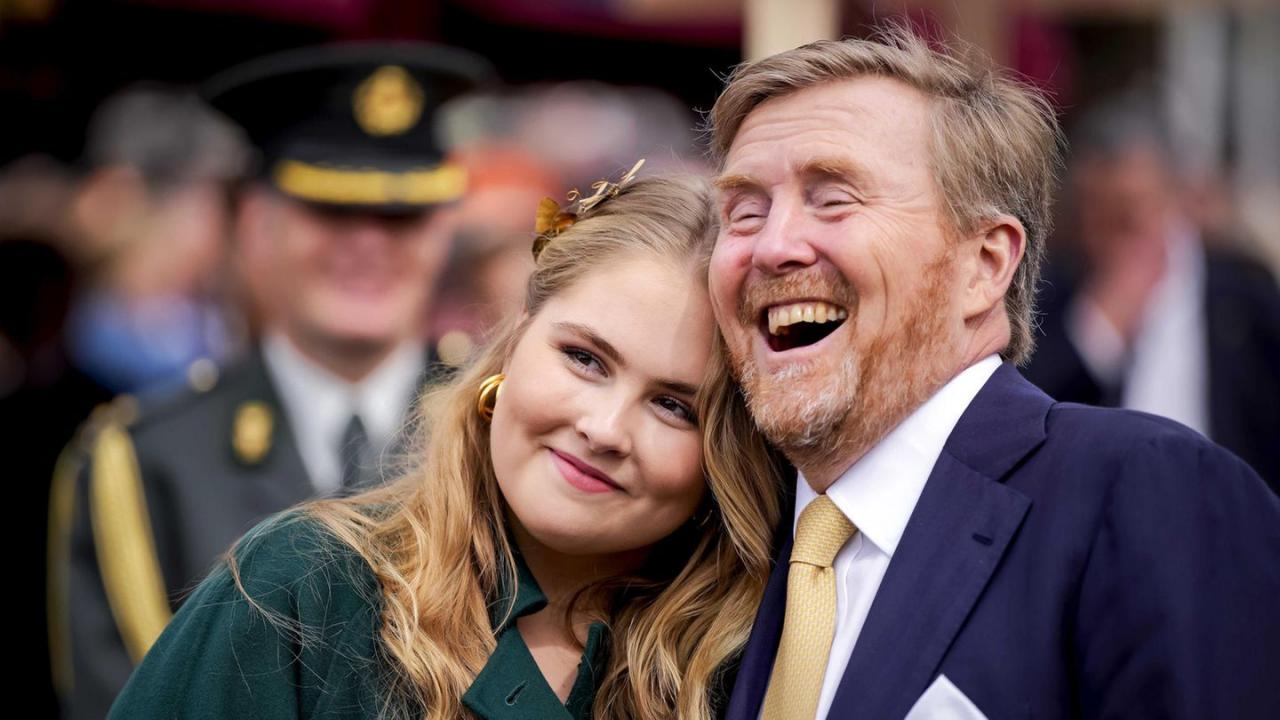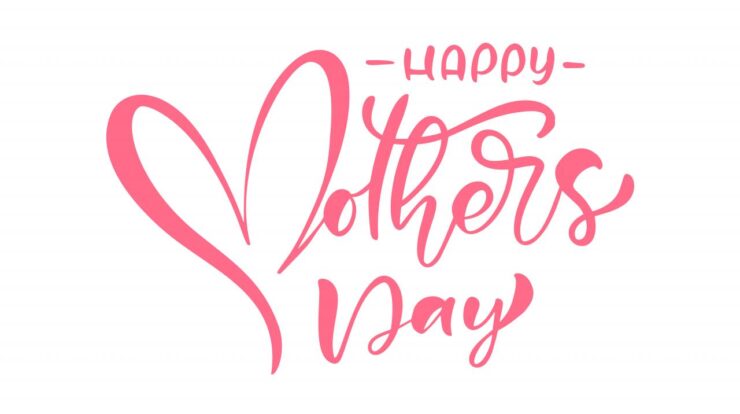
Netherlands king – The Netherlands monarchy, with its rich history and modern relevance, takes center stage as we delve into the reign of the Dutch kings, from their inception to the present day. From Willem-Alexander, the current reigning monarch, to the significance of the monarchy in Dutch culture, this exploration promises a captivating journey into the heart of the Netherlands’ royal legacy.
King Willem-Alexander, the head of state, plays a pivotal role in Dutch society, while the monarchy itself faces challenges and opportunities in the 21st century. The Dutch royal family, with its traditions and ceremonies, continues to shape the national identity, making this an intriguing study of a monarchy that has stood the test of time.
Reign of the Dutch Kings

The Dutch monarchy has a rich history dating back to the 16th century. The first Dutch king was William I of Orange, who led the Dutch revolt against Spanish rule and established the Dutch Republic in 1581. The Dutch monarchy has since been passed down through the House of Orange-Nassau, which has produced a long line of distinguished rulers.
The following table lists all the kings of the Netherlands, including their names, reign dates, and significant accomplishments:
| Name | Reign Dates | Significant Accomplishments |
|---|---|---|
| William I of Orange | 1581-1584 | Led the Dutch revolt against Spanish rule and established the Dutch Republic |
| Maurice of Nassau | 1584-1625 | Established the Dutch East India Company and expanded the Dutch empire |
| Frederick Henry | 1625-1647 | Continued the Dutch expansion and established the Dutch Golden Age |
| William II of Orange | 1647-1650 | Led the Dutch Republic to victory in the Thirty Years’ War |
| William III of Orange | 1689-1702 | Became King of England, Scotland, and Ireland in 1689 |
| William I of the Netherlands | 1815-1840 | Established the Kingdom of the Netherlands in 1815 |
| William II of the Netherlands | 1840-1849 | Established the Dutch constitution in 1848 |
| William III of the Netherlands | 1849-1890 | Expanded the Dutch empire and promoted industrialization |
| Wilhelmina of the Netherlands | 1890-1948 | Ruled during the First World War and the Second World War |
| Juliana of the Netherlands | 1948-1980 | Ruled during the post-war reconstruction period and promoted social welfare |
| Beatrix of the Netherlands | 1980-2013 | Modernized the monarchy and promoted international cooperation |
| Willem-Alexander of the Netherlands | 2013-present | Current King of the Netherlands |
Willem-Alexander, the Current King
Willem-Alexander is the current King of the Netherlands. He was born on 27 April 1967, in Utrecht, Netherlands. He is the eldest son of Queen Beatrix and Prince Claus. Willem-Alexander ascended to the throne on 30 April 2013, following the abdication of his mother.
Willem-Alexander is a graduate of Leiden University, where he studied history and law. He also served in the Royal Netherlands Navy. Willem-Alexander is married to Queen Máxima, who was born in Argentina. They have three daughters: Catharina-Amalia, Alexia, and Ariane.
As head of state, Willem-Alexander performs a variety of official duties, including opening parliament, signing laws, and representing the Netherlands abroad. He is also a patron of many charities and organizations.
Willem-Alexander is a popular figure in the Netherlands. He is seen as a modern and approachable monarch who is in touch with the needs of his people.
The Dutch Monarchy in the 21st Century
The Dutch monarchy is a constitutional monarchy, which means that the king’s powers are limited by the constitution. The king is the head of state, but he does not have any real political power. The Dutch government is led by the prime minister, who is appointed by the king.
The Dutch monarchy is popular with the Dutch people. A recent poll found that 75% of Dutch people support the monarchy. The monarchy is seen as a symbol of national unity and stability.
However, the monarchy has faced some challenges in recent years. In 2013, Queen Beatrix abdicated in favor of her son, Willem-Alexander. This led to some speculation about the future of the monarchy. However, Willem-Alexander has been a popular king, and he has helped to restore the monarchy’s popularity.
The Dutch monarchy is likely to continue to play an important role in Dutch society in the 21st century. The monarchy is a symbol of national unity and stability, and it is popular with the Dutch people.
The Role of the Monarchy in Dutch Culture
The Dutch monarchy plays an important role in Dutch culture. The king is a symbol of national unity and stability. He is also the patron of many charities and organizations.
The monarchy is associated with a number of traditions and ceremonies. For example, the king opens parliament each year. He also attends the annual Queen’s Day celebrations, which are held on April 27th.
The monarchy has a significant impact on Dutch national identity. The king is seen as a symbol of the Netherlands, and he is respected by the Dutch people.
The Dutch Royal Family
The Dutch royal family consists of the king, queen, and their three daughters. The king is the head of the family, and the queen is his consort. The king’s eldest daughter, Catharina-Amalia, is the heir to the throne.
The royal family lives in the Huis ten Bosch Palace in The Hague. They also have a number of other residences, including the Noordeinde Palace in The Hague and the Drakensteyn Castle in Baarn.
The royal family is very popular with the Dutch people. They are seen as a symbol of national unity and stability.
Here is a family tree of the Dutch royal family:
King Willem-Alexander | | | Queen Máxima | | | Catharina-Amalia, Princess of Orange | | | Alexia, Princess of the Netherlands | | | Ariane, Princess of the Netherlands
Closing Notes: Netherlands King
In conclusion, the Netherlands monarchy stands as a testament to the enduring power of tradition and the adaptability required to remain relevant in a modern world.
King Willem-Alexander’s reign marks a new chapter in this legacy, as the monarchy continues to navigate the ever-changing landscape of Dutch society. Its role in Dutch culture, both symbolic and practical, ensures its continued significance in the years to come.
Detailed FAQs
Who is the current King of the Netherlands?
King Willem-Alexander
What is the significance of the monarchy in Dutch culture?
It symbolizes national unity, preserves traditions, and fosters a sense of identity.
What are some of the challenges facing the Dutch monarchy in the 21st century?
Maintaining relevance, adapting to societal changes, and addressing issues of transparency and accountability.





